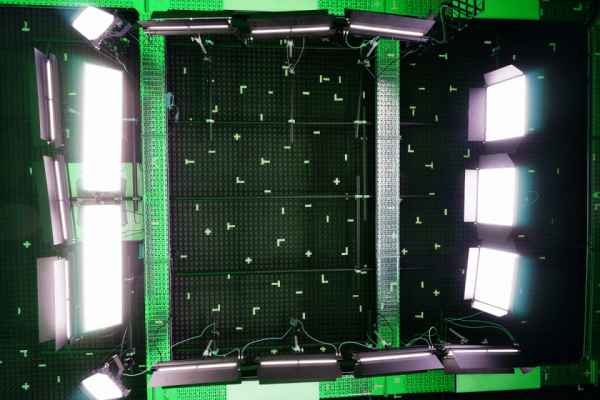
University of Bolton, Deane Road, Bolton. BL3 5AB
Tel:
Email:


“At the University of Bolton, we take great pride in providing a quality, supportive learning environment for our students.”
Professor George E Holmes DL | President & Vice Chancellor
“...tutors are very supportive and you’re not just a student ID number, at this university you are an individual with a name.”
Ellisse Vernon | BSc (Hons) Adult Nursing
Back to menu
Back to menu
Study with an Off-Campus Partner
Back to menu
Back to menu
University of Bolton, why we are the right choice
Location - Bolton, Greater Manchester

14/10/2024
The world of Visual Effects and Special Effects isn’t just about big explosions and monster fight scenes, it’s about creating entirely new worlds down to the tiniest details. While the directors and actors get most of the spotlight, the unsung heroes are the artists and technicians making magic come to life behind the scenes. And guess what? You could be one of them if you study Visual Effects and Animation at the University of Bolton. Here are 8 of the coolest roles that are essential for bringing those epic moments to the big screen.
1. Texture Artist
Have you ever wondered how a dragon’s scales look so lifelike or how that spaceship gains disuse patina? Well, that’s the work of a texture artist. These digital artists breathe detail, colour, and personality into every surface of the film, making sure each object is so realistic that you can almost reach out and touch it.
2. Matchmove Artist
In film, when you see somebody leap through a window while the glass shatters in slow motion… that’s CGI. It lines up so perfectly with the actor’s movement thanks to the matchmove artist. They use their keen eye for detail to track camera movements in live-action shots and sync them with CGI effects.
3. Foley Artist
Foley artists are responsible for creating the everyday sounds that make a film feel real and immersive. They’ll brainstorm crazy (but creative) ideas like snapping celery sticks to create the perfect sound for that knockout punch. Foley artists make audiences truly hear, and feel, the action.
4. Roto Artist
If you’re the kind of person who likes to blend in, becoming a roto artist could be for you. Their job is to meticulously trace around objects or actors to separate them from the background and dump them into new environments. It’s a painstaking process, but it’s what makes it possible for a character to go from the greenscreen to the battlefield.

5. Previsualisation (Pre-vis) Artist
Pre-vis artists create animated scenes that allow directors to put their ideas to the test. Want to see how a frenetic car chase through a collapsed city would look without spending millions? Pre-vis artists make it happen. If you love visual storytelling, this is where you’ll shine.
6. Matte Painter
Creating epic fantasy landscapes or futuristic cities is expensive (or impossible), but matte painters make it look easy. They paint incredibly detailed backdrops for scenes and help create the worlds most of us can only dream of!
7. Compositor
Compositors combine all the visual elements (live action, CGI and matte painting) into one perfect shot. Their job is to blend everything together seamlessly, whether it’s on-screen actors with animated companions, or adding the final touches to a battle scene.
8. Creature Technical Director (TD)
The job of the Creature TD is to bring monsters, aliens and other fantastic beasts to life. They design the skeletal and muscular systems that allow digital creatures to move and interact with their environment realistically.
The VFX and SFX industries are thriving with endless opportunities, with films, TV shows and even video games demanding increasingly jaw-dropping effects. Are you interested in what happens behind the camera? Talk to us on 01204 903394 or email enquiries@bolton.ac.uk to experience #UniAsItShouldBe and learn the skills you need for an exciting career.